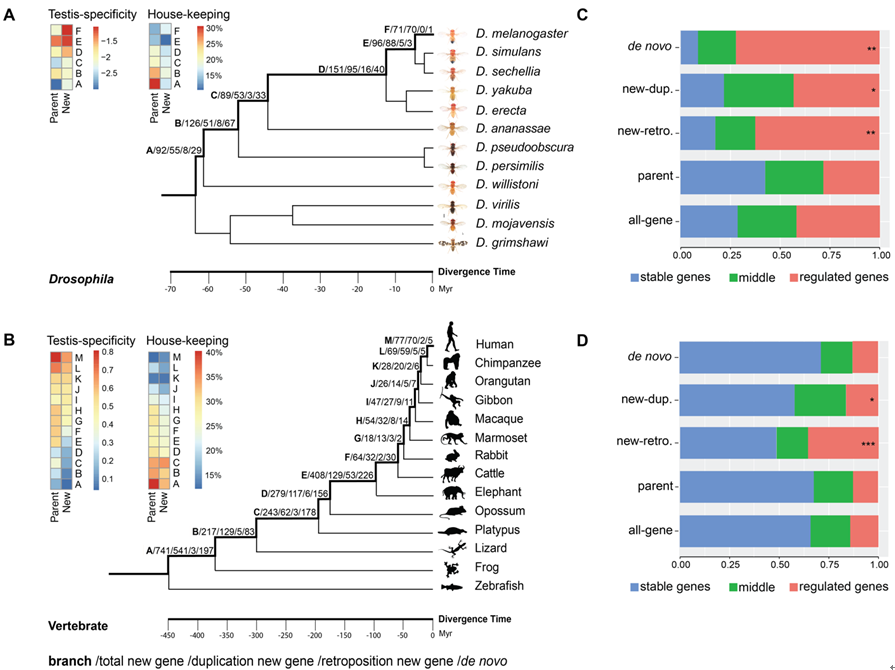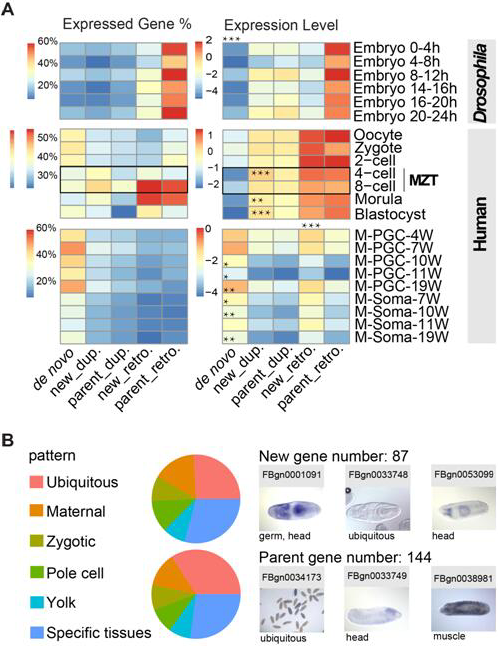On November 3th, 2018, Dr. Qi Zhou’s lab of the Life SciencesInstitute of Zhejiang University has published a paper in Molecular Biology and Evolution, which reported the regulatory evolution of new genes throughout their life history.
The origin of new genes with novel function is one major driving force for species’ adaptive evolution. Previous researches have characterized a general evolution landscape of new genes including their origin mechanisms, evolution rates and phenotypic effects. One critical unanswered question is that how do new genes rewire pre-existing functional networks by evolving distinctive regulatory patterns from their ancestor.
Here we used Drosophila and human new genes as model, and harnessed transcriptomic and epigenomic datasets across a broad range of tissues and developmental stages of Drosophila and human to investigate this question.

Fig 1: Drosophila and vertebrate new genes and their expression patterns.
We show there is a significant expression difference between new genes vs. their ancestors: first, new genes are becoming out of the testis by age(Fig.1, heatmaps);
Second, we found in both human and Drosophila, new genes show a similarly robust expression level as parental genes throughout embryonic stages, or even show higher expression level in specific tissues, which suggest that some of them have evolved important developmental function (Fig.2);

Fig.2: Dynamic expression of new genes in early embryos.
Third, we found there are significant differences between new and parental genes in their levels of histone modifications, and new retrogenes tend to show a significantly higher level of H3K27me3 modification than parental genes.Moreover, we uncovered that both new and parental genes exhibit an age-dependent change of chromatin states, with different patterns between human and Drosophila, which probably drive their age-dependent gene expression. Finally, parental and new genes have clearly diverged for their cis-regulatory elements and become enriched for different types of enhancers or sequence motifs.
Overall, we provided a general portrait of new genes throughout their life history, and uncoveredthe mechanisms for their regulatory evolution.
The first author of this work, Jia-yu Zhang is the master studentin Prof.Zhou’s lab and has graduated in June, 2018. This work was supported by funding from National Science Foundation of China (NSFC31722050, 31671319) and Zhejiang University.
Links: https://doi.org/10.1093/molbev/msy206



